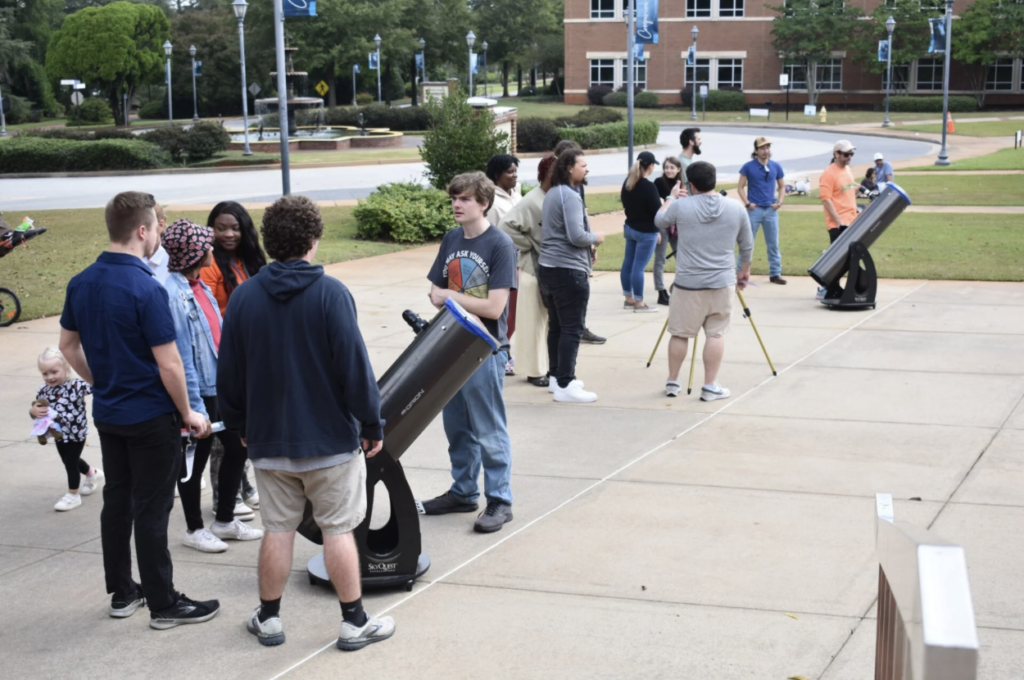Augusta University’s Physics Club is inviting the community to the Forest Hills Campus for an eclipse viewing on Monday afternoon, April 8, from 1:30 p.m. to 4 p.m.
To observe the upcoming celestial event, members from the club will be gathering on the Christenberry Fieldhouse’s Intramural Field, located at 3109 Wrightsboro Road, to hand out viewing glasses and manage telescopes.
Viewers for the fast-approaching total eclipse will enjoy about 80% coverage in the CSRA and it will be the last solar eclipse in the area until 2045, according to the AU Physics Club.
By allowing attendees to view the eclipse through the telescopes and special glasses, AU associate professor and physics fanatic Nathan Yanasak said he is hoping many will become more interested in naturally occurring phenomenons.
“All too often we sort of get way too busy in our lives and don’t enjoy these sorts of things, which way back in the day – back in ancient times – they considered it an absolutely transformative event,” Yanasak said. “… it’s also a great way to get people connected to the field of physics.”
From his own personal eclipse viewing experiences, Yanasak said he feels witnessing solar events reminds individuals about the universe’s amazing wonders.
“It sort of allows you to appreciate the fact that the sun is this absolutely terrifying and powerful thing, but at the same time it’s a very calm, stable system, which provides us with heat, light and energy,” he said. “It essentially has provided for all life on Earth.”

By utilizing specially crafted telescopes, Yanasak said locals will get to see intense details of the eclipse, such as solar flares.
“That’s a real treat. It’s something most people have never seen in their lifetime,” he said. “We’re very interested in having people outside of the university come and experience it as well.”
However, similar to weather conditions during the solar eclipse of 2017, Yanasak said weather forecasts predict there might be some cloudy conditions on eclipse day, but he thinks cloudy skies can only enhance the event.
“I was kind of shocked in 2017 how much it kind of highlighted the experience. It’s kind of like watching a horse race, because you’re waiting there and thinking, ‘come on, get out from behind that cloud’” he said. “It’ll be worth it to stick around, because the clouds will kind of be off and on, and there will be some breaks.”
For those who do not own eclipse viewing glasses, professionals are warning spectators to avoid looking directly at the sky during the event, as this can cause severe eyesight damage due to harmful rays.
For more information about the eclipse, visit: https://science.nasa.gov/eclipses/future-eclipses/eclipse-2024/where-when/
“This is kind of an event that celebrates the sun and life for all eternity on this planet,” Yanasak said. “I think one of the most important things we want to promote too is that we’re a community resource, and we really want to pay the community back by providing these types of resources.”










